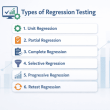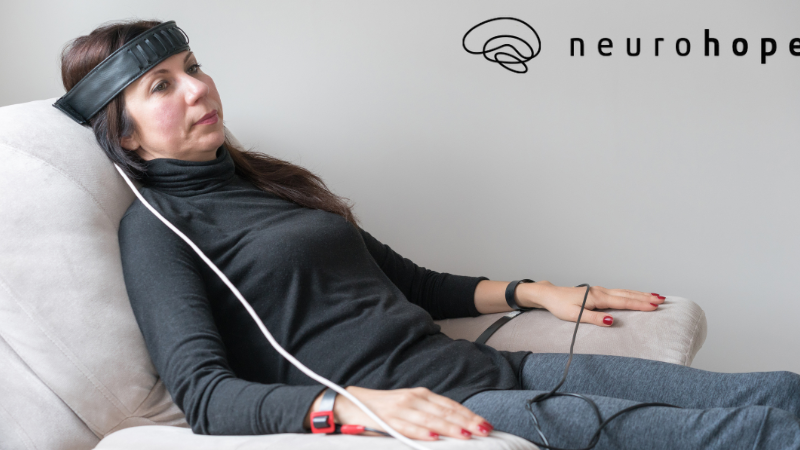When someone first hears the phrase Neuropsychological Testing in Colorado Springs, they might picture a sterile clinic and a barrage of confusing questions. The truth is, it’s a lot more approachable than most expect. It’s about understanding how the brain’s gears are turning—or where they might need a little fine-tuning.
Neuropsychological evaluations are an essential part of getting to the root of struggles with memory, attention, mood, and thinking. These tests don’t just throw data on a chart; they build a story about how someone’s brain is handling life – whether that’s recovering from a concussion, managing PTSD, or noticing the early fog of dementia.
Getting Comfortable with the Process
Neuropsychological evaluation feels a lot like a long conversation mixed with puzzles and memory challenges. The day might include simple tasks like remembering a list of words, solving visual problems, or quickly switching attention from one thing to another.
Clinics that offer Cognitive Function Testing or Neurocognitive Testing in Colorado Springs often make an effort to keep things relaxed. Patients are encouraged to wear comfy clothes, take breaks when needed, and think of it less like an exam and more like a chance to learn about themselves.
For those living with anxiety or ADHD, the idea of sitting through hours of tests can sound daunting. But the evaluators understand—many of them have sat across the table from nervous patients hundreds of times. They’re good at spotting when someone needs a breather or a snack to stay sharp.
Four Disorders, Four Different Stories
When looking at Mental Health Services and how they tie into neuropsychological evaluations, four conditions often come up: ADHD, disruptive mood dysregulation disorder (DMDD), oppositional defiant disorder (ODD), and depression. Each brings its own flavor to the testing table.
ADHD often shows up in kids and adults who describe their thoughts like a dozen TVs blaring different channels all at once. Attention assessments become critical here. It’s not just about whether someone can focus for 20 minutes—it’s about understanding how their brain switches gears, processes tasks, and manages impulsivity.
Testing helps distinguish between someone who is a little disorganized and someone whose brain wiring demands extra strategies. A teenager struggling to finish homework might not just be lazy—they could be fighting a neurological uphill battle without the right support.
Disruptive Mood Dysregulation Disorder tends to show its face earlier in life. These kids aren’t just having tantrums – they experience volcanic mood swings that seem way out of proportion to the moment. Testing helps parents and teachers stop labeling these kids as “problem children” and start seeing the emotional dysregulation for what it is: a legitimate mental health condition that needs thoughtful intervention.
Oppositional Defiant Disorder is a little trickier. A child or teen might seem constantly argumentative, defiant, or deliberately annoying. But a deeper evaluation often reveals frustration bubbling under the surface—possibly tied to undiagnosed ADHD, anxiety, or learning disabilities. The tests don’t just look at behavior; they piece together the emotional and cognitive puzzle behind it.
Depression, on the other hand, wears many masks. In older adults, depression might hide behind complaints about memory loss, making it easy to confuse with early dementia. In teenagers, it could look like anger or chronic boredom. Neuropsychological testing doesn’t just identify the presence of depression; it shows how it’s impacting cognitive function day-to-day. Memory testing and attention assessments often uncover the subtle ways depression slows down thinking, clouds decision-making, and drains motivation.
Young vs. Aging: How Disorders Show Up Differently
ADHD in a six-year-old boy can mean bouncing off the walls and forgetting his backpack every day. ADHD in a 45-year-old woman might look like chronic disorganization, struggling to prioritize tasks, and feeling overwhelmed by minor challenges. Same brain differences—very different real-world impact.
Disruptive mood dysregulation disorder is almost exclusive to children; it tends to morph into other diagnoses (like depression or anxiety) as they grow older. This is where early Cognitive Dysfunction Diagnosis makes a huge difference, setting kids up for better mental health long-term.
Depression strikes differently based on age too. Younger people might show irritability, restlessness, and frustration. Older adults might become withdrawn, anxious about their health, or unusually forgetful. Without the right kind of testing, early dementia and depression can look dangerously similar, leading to misdiagnoses that delay the right treatment.
Brain injury assessments also paint different pictures depending on life stage. A 20-year-old who suffers a concussion might bounce back in weeks; a 60-year-old might struggle for months with memory gaps and attention problems. That’s why Traumatic Brain Injury Testing and Neurological Disorders Evaluation have to be tuned carefully to the patient’s history and age.
Real Life in the Testing Room
There’s an old therapist joke that getting a neuropsychological evaluation is like taking your brain to the mechanic. Only, instead of tightening bolts or replacing belts, the specialist is checking how well your memory, language, and problem-solving skills are humming along.
One adult patient described their session like this: “It felt like a mix between a school quiz and a detective interview. Some parts were fun, some were frustrating, but the psychologist kept things light – and she explained why each test mattered.”
Another teenager, getting memory testing after a mild concussion from soccer, said he thought the hardest part was not second-guessing himself. “I kept thinking, ‘Was that answer right? Should I have said something else?’ But the evaluator said it wasn’t about being perfect – it was about seeing how my brain was working right now.”
Beyond Labels: Finding the Right Help
A Neuropsychological Evaluation isn’t just about slapping on a diagnosis. It’s about building a roadmap. If the tests show attention gaps, memory issues, or emotional control problems, mental health services can step in with therapies, medications, or skills training that actually fit the patient’s real-world challenges.
Someone struggling after a mild brain injury might get specific cognitive therapy. A child with undiagnosed ADHD might finally get classroom accommodations that let them shine. An older adult with early dementia signs can start planning for cognitive wellness instead of wondering why the world feels harder lately.
Anxiety, PTSD, concussions, ADHD, dementia—they all leave fingerprints on the brain’s day-to-day function. HBOT Therapy or Neurocognitive testing helps make those invisible fingerprints visible.
And when the invisible becomes visible, people can finally stop blaming themselves – or being blamed by others – for challenges that were never about effort or character to begin with.
Colorado Springs: A Hub for Cognitive Wellness
In Colorado Springs, there’s no shortage of clinics offering Neuropsychological Testing. Some cater to athletes recovering from concussions. Others specialize in Brain Injury Assessment after car accidents or falls. A growing number are stepping into the arena of early Dementia detection, helping aging adults maintain independence as long as possible.
There’s a quiet pride in the local community around how mental health services have evolved. A decade ago, someone dealing with post-concussion symptoms might have been told to just “wait it out.” Now, with Attention Assessment tools and better Memory Testing, patients have real options – and real hope.
Clinics have also gotten smarter about mental health overlap. PTSD, for example, can mimic ADHD or depression symptoms. Careful testing sorts out what’s trauma-related from what might be an underlying cognitive disorder. This way, treatments aren’t a shot in the dark—they’re tailored to the real wiring of the individual’s brain.
One local veteran shared how a full Neurological Disorders Evaluation changed his life after years of battling PTSD and memory issues. “I thought I was just broken,” he said. “Turns out, my brain had been trying to cope with overload the whole time. Once I understood that, everything changed.”
Testing Isn’t the End – It’s the Start
There’s a common feeling when people finish neuropsychological evaluations: relief. Not because it’s over, but because they finally have a clear picture. Whether it’s a child starting therapy for oppositional defiant disorder, an adult learning how ADHD impacts their work life, or an older adult finding early support for mild cognitive impairment – knowledge gives power.
It also gives kindness. Parents stop scolding kids for what they can’t control. Partners stop blaming each other for forgotten appointments or emotional outbursts. Friends and families can finally separate the person from the symptoms.
In the end, Neuropsychological Testing in Colorado Springs isn’t about labelling brains as broken or deficient. It’s about understanding them – how they adapt, how they struggle, and how they can heal.
Because every brain tells a story. And with the right tools, it’s a story that can move forward with more hope, more clarity, and a lot more compassion.











